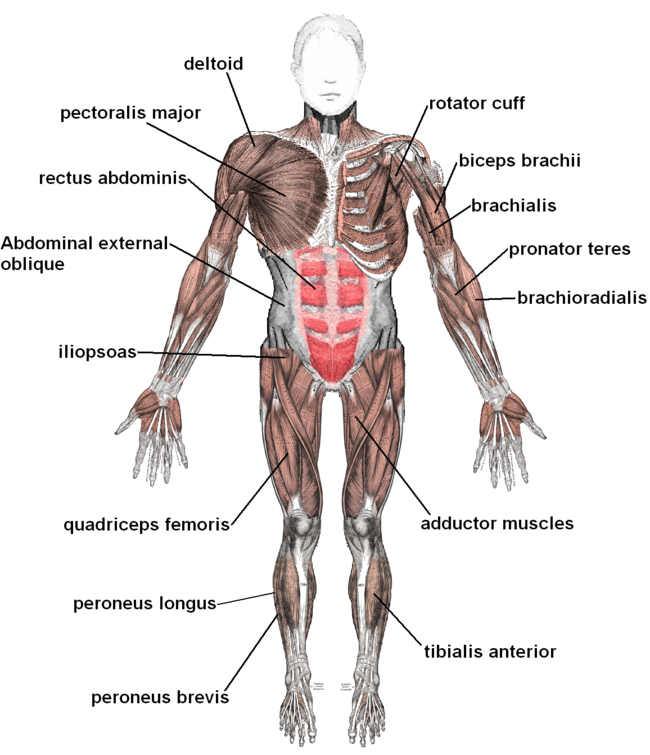Unlocking the Mind: The Surprising Benefits of Weightlifting
Written on
Chapter 1: The Connection Between Exercise and Cognitive Function
Engaging in weightlifting is a regular part of my routine. An increasing number of studies indicate that exercise plays a crucial role in enhancing health, combating age-related decline, and promoting longevity. Naturally, it's essential to complement physical activity with other health-enhancing practices:
Longevity: Is exercise the secret to a longer, healthier life?
A recent study suggests that while exercise is vital for longevity, adopting additional healthy lifestyle habits is equally crucial.
My Goals
In previous discussions, I've highlighted how exercise benefits us—ranging from improved cardiovascular health to lower risks of chronic illnesses and longer lifespans. Today, my focus shifts to how physical activity can elevate cognitive function. Specifically, I will delve into the role of myokines—peptides or proteins released by skeletal muscle cells—and their influence on other bodily tissues and organs. In essence, myokines serve as messengers from muscles, signaling to various body parts to maintain health and vitality.

Chapter 2: Understanding Myokines and Their Role
Do you view skeletal muscle solely as a means for movement? If so, you might be surprised to learn that skeletal muscle also operates as an endocrine organ. It releases various peptides and proteins—collectively termed myokines—that act as signaling molecules to other body parts.
Myokines: The Messengers from Muscles
The relationship between muscle mass and cognitive function is complex and mediated by myokines. These peptides, secreted by active muscles, travel through the bloodstream and have a direct impact on the brain.

Myokines influence numerous physiological processes, including:
- Metabolism: Regulating glucose uptake and lipid metabolism.
- Inflammation: Modulating immune responses and reducing inflammation.
- Brain Function: Supporting neurogenesis and enhancing cognitive abilities.
- Cardiovascular Health: Improving heart function and lowering blood pressure.
- Bone Health: Stimulating bone formation and preventing loss.

Health Implications of Myokines
The endocrine role of skeletal muscle carries significant implications for health. Engaging in regular physical activity boosts the release of beneficial myokines, fostering overall well-being and reducing the risk of chronic diseases. Conversely, muscle loss, or sarcopenia, linked with inactivity, leads to decreased myokine production, which can contribute to various health issues, including metabolic syndrome and cognitive decline.
Myokines and Cognitive Function
Key aspects of the myokine-brain relationship include:
- Neuroprotective Properties: Certain myokines, like cathepsin B, can cross the blood-brain barrier and promote the growth of new neurons while reducing inflammation.
- Positive Feedback Loop: Active muscles release more myokines, enhancing brain health, which can further support muscle function.
- Negative Effects of Inactivity: Lack of physical activity diminishes myokine production, leading to adverse effects such as impaired cognitive function.
The first video, "The Science of Exercise for a Sharper Mind," explores how physical activity can significantly enhance cognitive abilities and overall brain health.
The Link Between Muscle Mass and Cognitive Decline
Emerging evidence suggests that low muscle mass is associated with cognitive impairment. Most existing studies are epidemiological and often fail to establish direct causation.

Reasons for the Link Between Low Muscle Mass and Cognitive Decline:
- Strong Association: Numerous studies show a clear correlation between reduced muscle mass and cognitive decline.
- Dose-Dependent Relationship: The risk of cognitive impairment increases as muscle mass decreases.
- Consistency Across Research: Various studies consistently demonstrate this association, reinforcing the potential causal link.
- Biological Plausibility: Myokines released by muscles are known to directly influence brain health.
- Temporal Relationship: Some studies indicate that low muscle mass can precede cognitive decline, supporting its role as a contributing factor.
While further research is needed to confirm causality, the data strongly suggests that low muscle mass may not just be a marker but a potential cause of cognitive decline.
Implications for Health and Fitness
Exercise is crucial for maintaining the communication between muscles and the brain through myokines. Conversely, physical inactivity can disrupt this connection, leading to declines in both physical and cognitive health.

Looking Ahead
Research into the endocrine functions of skeletal muscle is rapidly advancing. Scientists are continually identifying new myokines and unraveling their roles in health and disease. This growing understanding promises to pave the way for innovative therapeutic strategies to address various health conditions, emphasizing the interconnectedness of our body systems and the powerful role of exercise as a form of medicine.
The second video, "Wendy Suzuki: The brain-changing benefits of exercise | TED," discusses the transformative effects of physical activity on brain health and cognitive function.
As I reflect on this information, I hope it has shifted your perspective on skeletal muscle beyond just a facilitator of movement and force generation.